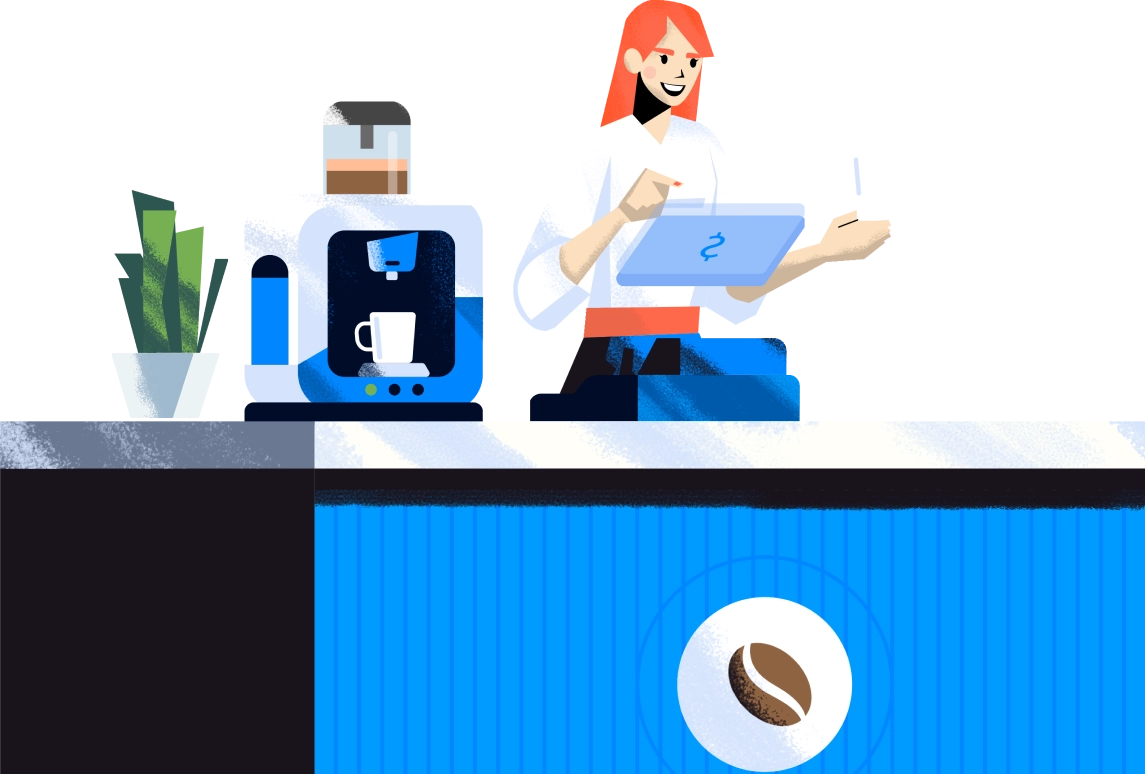(Don't be Roz)
Earth is home to two kinds of humans: The Good and Assholes. The same rule applies in the business world. Your clients and leads are judging the same way. Your brand is either good or bad.
In a world where companies go 100% digital, we still have to understand traditional businesses. I'm talking about your hairdresser, your favorite restaurant or the local printer making your flyers. I'm talking about entrepreneurs who have built decade-long reputations without Facebook Ads, or Google Adwords. "Hello there, same as the last time?"
It’s loyalty. In a digital world where everybody can make their own "startup", competition is de facto increased. As unique your as idea might be, on this planet, somebody is already doing right now the exact same thing.
Execution and team experience are essential. Most entrepreneurs forget one simple thing that can change the game: caring for your users the best possible way.
Using clients for self-improvement
I don't like talking about customer support. Customer support assumes that your customer needs help. Let's reverse the concept by assuming YOU need help.
Your landing page may be a disaster, your value proposition is not crystal clear, your product is imperfect. Guess what? We don't care!
This rule doesn't apply only to early-stage startups. If your business has a bit of success, every day your clients will be asking for more and more.
So you need to listen to them, any way you can.
At Crisp, we offer a customer support solution by chat that you can add to your website (self-promotion). For us, our chat is a privileged channel with our customers. If you prefer using your phone, use it! Whatever works for you. It's a state of mind.
Like us, you will discover that your leads and clients have a ton of things to say. Of course, you will have assholes,people who are bitter, people who are good, supersfans, the relaxed. After-all people who will learn things about your business you may ignore.
You will discover that people have a life, they have a family, kids, they just found your website amongst many others. They are talking with a human who understands their issue, and they let them go.
The internet has a key advantage: People are behind their screens and don't know you personally, so that they can be pretty straightforward.
They will tell you they don’t understand what your business solves, that they don't know how to signup, that they don't know where to find a particular piece of information. Or that your product is broken.
All that feedback matters because it lets you promote and position yourself. It enables you to use the right words and branding to make a better product.
If a client points out something that is broken, 30 more clients may have the same issue and just didn't tell you.
Fundamentals
It's funny seeing startups kickstarting with email addresses like firstname.lastname@startup.io and a "Core Team" signature. Seriously, guys? Core Team? There’s only 4 of you!
From experience, we know that most startups are virtually inflating their workforce on their “About Us” page.
Be yourself! Don't hide yourself behind a Shutterstock agent with overly whitened teeth. Everybody hates that photo. Show yourself! Your name, your little imperfections.
Don't automate
Most companies dream of a "Ultra-fast-automatic growth" magic button.
It doesn't exist. And if if did exist, everybody would use it.
Bots, drip-campaigns, opt-in popups asking for your email, automated phone calls, and fake friendly emails including your last name, first-name, and other information pulled from Linkedin: everybody hates it.
Everyone is using the same "Growth Hacks", none of which are effective anymore, because everyone, used and overused those tricks.
Today, tomorrow, in a year, 10 years, there is only one constant: Clients needs authenticity to be loyal.
Bots, content strategies, hacks: they’re ephemeral.
Reputation and word of mouth are built slowly but works in time.
Do it yourself
Many startups use interns to stand for the "ungrateful" position that is customer support. OK, let's underpay these interns and have them talk with clients. What will happen?
In 4 months, your interns will leave, taking with them all of your client's feedback. Letting your interns do this job is a lack of respect for the customer support position.
As mentioned above, the benefits of doing customer service is not only for the customer. It's also for you. You can't lose this live impression, this sixth sense that helps you make decisions.
Using interns means considering customer support as a process. It means you are'nt as close as you should be to your clients.
Of course, it's not possible to use 100% of your time to talk with your clients, but everybody in your company needs take part in this job.
Developers need to understand that their bugs have a real impact on people's lives and that sometimes they could save a lot of time to their colleagues, and in the end, for to customers.
Marketers should do customer support to understand the company's target, the typical customer, their pain-points, and so, improving positioning
In the same way, executives need to understand their end-clients and adapt their decisions.
Finally, designers and people involved in the product could build empathy for customers, and so design products that really correspond to them.
Be closer to your customers
The key idea is to construct a dialogue with your clients. It’s not that clients ask for information and then you reply. You need to build a two-party dialogue.
Communicating with clients is a bit like dating: meeting someone for the first time in a pub. You are judged by what you say, and every single mistake may be fatal. Communication needs to go both ways
So avoid macro-answers when it's possible. In general, they solve only 70% of an issue. So you’re still missing 30%.
Overall, it's really frustrating for your customers to feel like they are talking to a bot.
Then it's time to ask questions!
How did they come to know your solution? Has their past issue with your software been solved? How can we improve on any particular point? What are they trying to build using your solution?
Being closer to your customers also means notifying them when you've solved a bug or an issue. No need to use a bug tracker if you care about your customer, you will remember who to contact when the issue is solved.
Don't expect a Tweet and a thank you mail. Just know that you convinced a client, and that over the long-term they'll be grateful.
My last piece of advice if you call a client: Smile! Just smiling on the phone helps you to be more kind. Try calling your hairdresser, you'll see ;)
One more thing
If there is one thing to understand about this article it's that caring about customers is a state of mind that you need to apply at every moment.
Don't hesitate to check out Crisp if you want to improve your customer experience.
And finally, don't hesitate to share your tricks for helping your customers!













